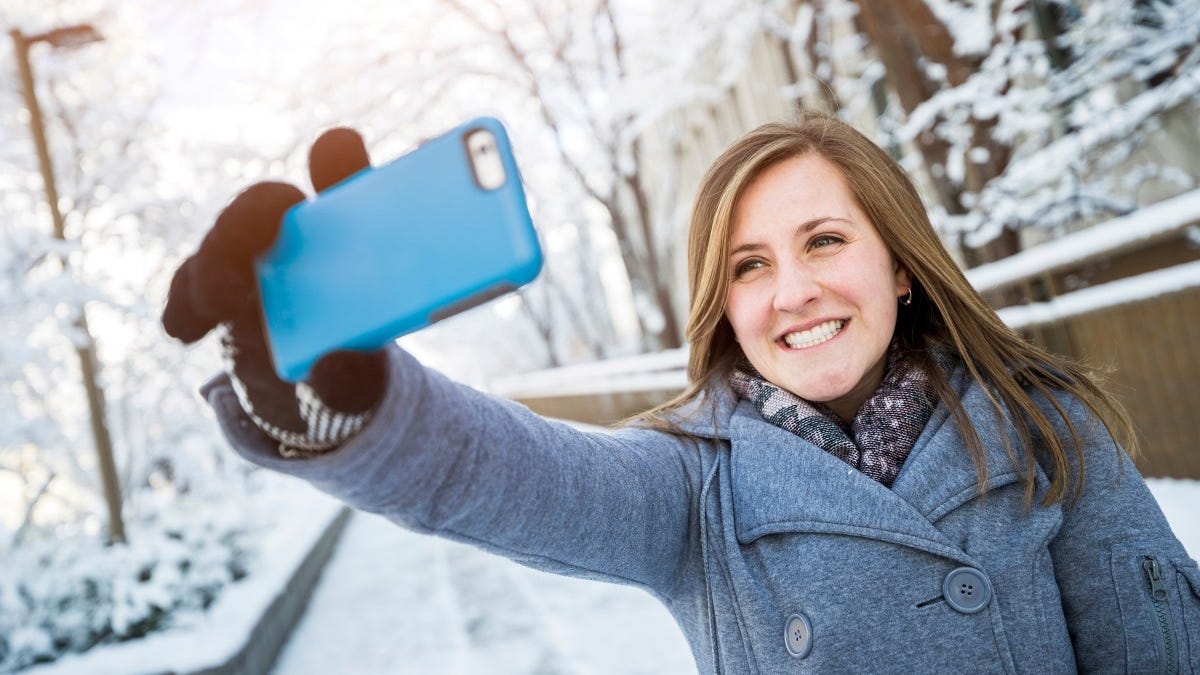Are selfie takers narcissists? The answer isn't so simple
Student researchers set out to understand what motivates the selfie-obsessed. See if you recognize yourself in one of the three groups of selfie takers they identified.
For the uninitiated, the scourge of selfies can seem like a pandemic of narcissism spreading across social media. New research, however, shows there's much more to them than self-obsession and showing off.
Student researchers at Brigham Young University pondered the motivations for their own selfies and then conducted a series of interviews to see why our culture has become obsessed with turning the lens on ourselves. Their analysis revealed there are three basic types of selfie takers: communicators, autobiographers and self-publicists.
Communicators use selfies basically as a visual means of keeping in touch with friends, family and followers as part of a conversation.
"They're all about two-way communication," explained study co-author Maureen "Mo" Elinzano in a press release Jan. 6.
Autobiographers are using selfies to create a sort of digital scrapbook or photo album. (Haven't put one of those together in a while, right?) They aren't necessarily looking to start a two-way conversation with their selfies. The researchers cite astronaut Scott Kelly as a prototypical selfie autobiographer.
Self-publicists are probably most likely to include the self-obsessed self photographers that drive the negative, narcissistic stereotype of selfie takers. The researchers specifically note that the Kardashians probably fall in this category.
These "are the people who love documenting their entire lives," said co-author Harper Anderson. "And in documenting and sharing their lives, they're hoping to present themselves and their stories in a positive light."
The study was published in the journal Visual Communication Quarterly. It was based on interviews with survey participants who were asked to review a number of different statements that have been made in the media or otherwise in public about what motivates selfie taking.
"Once we compiled all the statements, we wrote them on note cards and had the 46 participants (in person) sort them into a hierarchy from most like them to least like them," lead author Steve Holiday explained to me via e-mail. "It's neat to watch this process because the participants are forced to be introspective and negotiate with themselves to choose what motivations characterize them."
Holiday says the study is preliminary exploratory research and that it can't be generalized to apply to the entire population.
"We just saw all of the research saying that selfie takers were narcissists," he explained. "We recognized that our own motivations for engaging in this practice were much more layered than simple narcissism. Selfie takers are a diverse, vibrant group of people with a complex combination of motivations."
Co-author Matt Lewis says that understanding the motives behind selfies is important "because years from now, our society's visual history is going to be largely comprised of selfies."
That may be true, but let's also remember that selfies are taken in the context of the real world, and focusing on capturing yet another shot of our own mugs isn't always a good move. The rise of selfies on dates, or from dangerous vantage points, or at funerals, or with frickin' wild bears are just a few examples.
Even if you know what type of selfie taker you are, there's still a right time and place for doing your communicating, autobiographizing and self-publicizing ... like space:
Batteries Not Included: The CNET team shares experiences that remind us why tech stuff is cool. Take a look here.
CNET Magazine: Check out a sampling of the stories you'll find in CNET's newsstand edition, right here.


